The Institute for Social Transformation hosts an annual Better World Book Party to honor faculty authors from the UCSC Division of Social Sciences who published that year.
2025 Books
To submit books published in 2025, please submit this form.
2024 Books
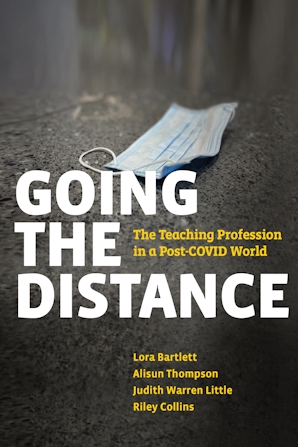
Going the Distance: The Teaching Profession in a Post-COVID World
Lora Bartlett (Associate Professor in UCSC’s Education Department)
Co-authors: Alisun Thompson, Judith Warren Little, Riley Collins
The book presents vivid firsthand accounts of teaching during crisis that were captured as part of the Suddenly Distant Research Project, a longitudinal study of the experiences of seventy-five teachers in nine states over thirty months, from the school closures of spring 2020 through two full school years. The authors characterize the pandemic as a perspective-shifting experience that exposed existing structural problems and created new ones: a widespread sociopolitical framing of teaching as an occupation constrained by strict regulation and oversight, an over-reliance on test-based accountability, a decline in public investment in education, and growing legislative constraints on what teachers could teach.

Civic Education in Polarized Times
Elizabeth Beaumont (Associate Professor of Politics and Legal Studies)
Co-editor: Eric Beerbohm
As fears of political polarization and democratic corrosion rise, many people have posited civic education as a possible remedy. In a time of increasing political fragmentation, what should the goals of civic education be, and how should they be implemented? What types of civic learning hold promise for preparing students to navigate their way through a political landscape of escalating hostile factions, distrust, truth decay, and deep disagreements about facts and history? The dynamics of polarization do not stop at the schoolhouse gates, but bring new urgency to civic education and the need to explore the significance, possibilities and challenges of educating for democracy in the contemporary era.
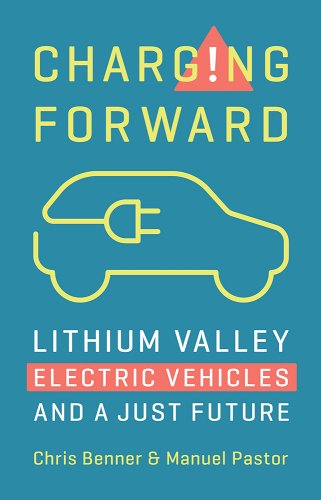
Charging Forward: Lithium Valley, Electric Vehicles, and a Just Future
Chris Benner (director of the Institute for Social Transformation) and Manuel Pastor (director of the Equity Research Institute at the University of Southern California)
California’s Salton Sea region is home to some of the worst environmental health conditions in the country. Recently, however, it has also become ground zero in the new “lithium gold rush”—the race to power the rapidly expanding electric vehicle and renewable energy storage market. The immense quantities of lithium lurking beneath the surface have led to predictions that the region could provide a third of global demand. But who will benefit from the development of this precious resource? A work of stunning analysis and reporting, Charging Forward shows that the questions raised by Lithium Valley lie at the heart of the “green transition.”
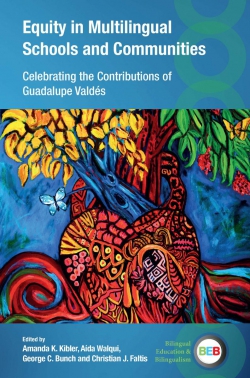
Equity in Multilingual Schools and Communities
George C. Bunch (Professor in UCSC’s Education Department)
Co-editors: Amanda K. Kibler, Aída Walqui, and Christian J. Faltis
This book honors the impactful contributions of Guadalupe Valdés toward equity in multilingual schools and communities. As one of the first language education scholars to examine the vibrant language practices of bilingual users in the US Southwest, her work marked a departure from traditional foreign language approaches and sparked a movement focused on valuing heritage languages and creating more equitable educational systems for young people from linguistically minoritized backgrounds. Influenced by the work of Professor Valdés, the contributors to this book draw on multiple aspects of her research to look at new ways of addressing equity and social justice for multilingual users in schools and communities.

A Just Transition for All: Workers and Communities for a Carbon-Free Future
J. Mijin Cha (Assistant Professor in UCSC’s Environmental Studies Department)
In A Just Transition for All, J. Mijin Cha offers a comprehensive analysis of how we can enact transformational changes that meaningfully improve people’s lives. The book provides a novel governance framework called the Four+ Pillars, formulated from original research to provide a way to move from theory to practice. The Pillars framework includes a novel analysis that guides readers in understanding how to formulate effective just transition policies, what makes them just or unjust, and, similarly, what makes transition just and unjust.

Human Rights Counterpublics in Perú Contesting Tiers of Citizenship
Sylvanna Falcón (Professor of Latin American and Latino Studies at UCSC)
Falcón examines how local activist and artist communities in Lima have formed human rights counterpublics — oppositional spaces, movements, and communities to challenge a status quo that aims to erase or minimize Perú’s history of internal violence. These counterpublics focus on the creation of what she refers to as transformative memory, which engages with the legacies of racism and misogyny underlying the violence and social exclusion. As she shows, projects shaped by counterpublic memory best equip Peruvians to enact real, liberatory, and transformative justice for human rights violations both past and present.
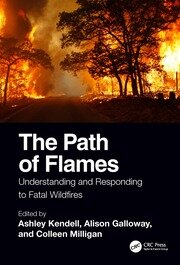
The Path of Flames: Understanding and Responding to Fatal Wildfires
Edited by Ashley Kendell, Alison Galloway (Professor Emerita of Anthropology at UCSC) & Colleen Milligan
With increasing danger from wildfires, this book provides a comprehensive examination of the many facets of how these can be fatal, how to respond, and how to deal with the remains of victims.
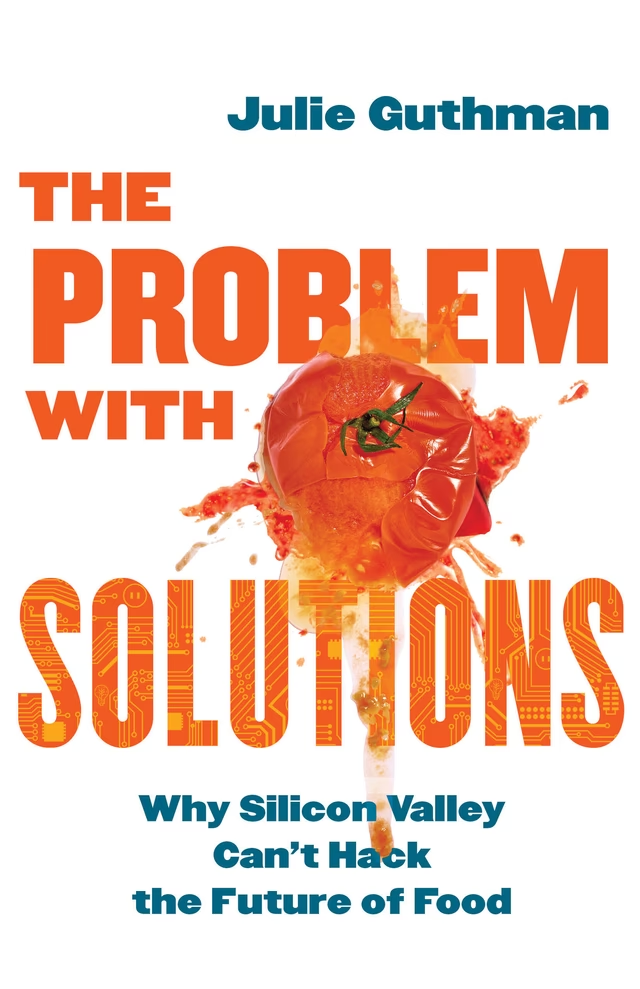
The Problem with Solutions: Why Silicon Valley Can’t Hack the Future of Food
Julie Guthman (Professor of Sociology at UCSC)
Defining solutions as finite, narrowly conceived fixes to problems that themselves have been bounded and rendered solvable, in this book I examine what gave rise to the solution imperative and how Silicon Valley-style solutions, especially related to food and agriculture, are often pursued with limited knowledge of the problem, a narrow set of tools, and a constrained sense of possibility. Solutions may be gratifying for the solver, but they are not up to the task of addressing the complex social and ecological problems of our food system. They are no substitute for the hard work of strategically-informed organizing that must take place instead.
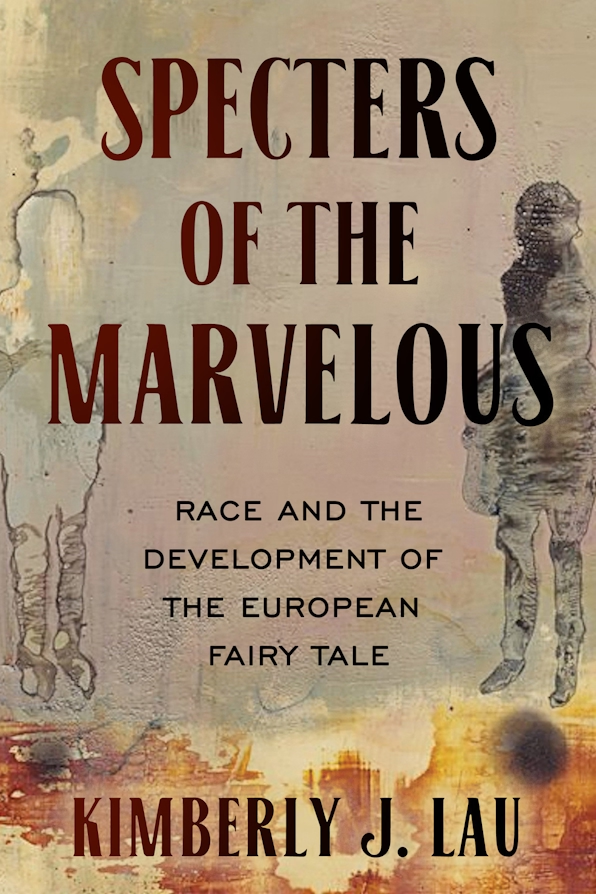
Specters of the Marvelous: Race and the Development of the European Fairy Tale
Kimberly Lau (Provost of UCSC’s College Nine / John R. Lewis College)
Specters of the Marvelous: Race and the Development of the European Fairy Tale addresses the striking absence of race in critical studies of the European fairy tale by proposing a new understanding of the European fairy tale canon. By calling attention to the convergence of literary influence and comparative histories of racialization, Specters of the Marvelous highlights both the principal role of race in the development of the European fairy tale and the naturalized role of the fairy tale in the development of western racisms and racial formations.
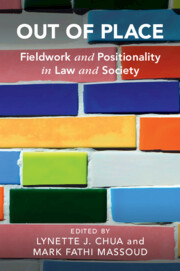
Out of Place: Fieldwork and Positionality in Law and Society
Mark Fathi Massoud (Professor and Chair of Politics & Director of Legal Studies at UCSC)
Co-editor: Lynette J. Chua
Out of Place tells a new history of the field of law and society through the experiences and fieldwork of successful writers from populations that academia has historically marginalized. Encouraging collective and transparent self-reflection on positionality, the volume features scholars from around the world who share how their out-of-place positionalities influenced their research questions, data collection, analysis, and writing in law and society. As the global field of law and society becomes more diverse and an interest in identity grows, Out of Place is a call to embrace the power of positionality. This title is also available as Open Access on Cambridge Core.
2023 Books
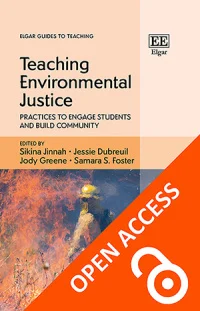
Teaching Environmental Justice: Practices to Engage Students and Build Community
Sikina Jinnah (Professor of Environmental Studies at UCSC)
Edited by Jessie Dubreuil (Professor of Literature at UCSC), Jody Greene (Professor of Literature at UCSC) and Samara S. Foster (Managing Director of UCSC’s Teaching and Learning Center)
This book presents interdisciplinary educators with classroom tools and strategies to integrate environmental justice into their courses. Providing accessible, flexible, and evidence-based pedagogical approaches designed by a multidisciplinary team of scholars, it centers equity and justice in student learning and course design. It further presents a model for community-based faculty development that can communicate those pedagogical approaches across disciplines.
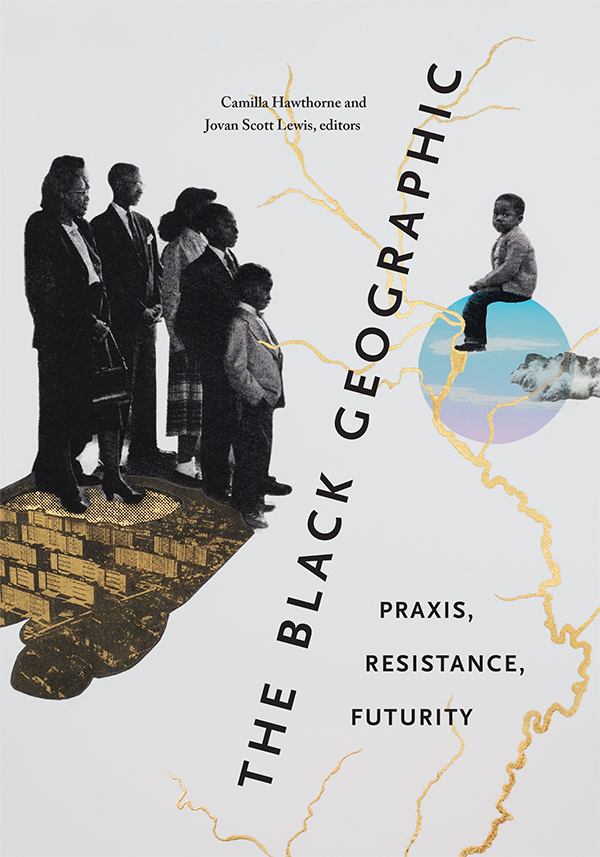
The Black Geographic Praxis, Resistance, Futurity
Edited by: Camilla Hawthorne (Associate Professor of Critical Race and Ethnic Studies) & Jovan Scott Lewis
Contributors: Anna Livia Brand, CNE Corbin, Diana Negrin, Lindsey Dillon, Chiyuma Elliott, Ampson Hagan, Matthew Jordan – Miller Kenyatta, Judith Madera, Jordanna Matlon, Solange Munoz, Danielle Purifoy, Sharita Towne
The contributors to The Black Geographic explore the theoretical innovations of Black Geographies scholarship and how it approaches Blackness as historically and spatially situated. In studies that span from Oakland to the Alabama Black Belt to Senegal to Brazil, the contributors draw on ethnography, archival records, digital humanities, literary criticism, and art to show how understanding the spatial dimensions of Black life contributes to a broader understanding of race and space. They examine key sites of inquiry: Black spatial imaginaries, resistance to racial violence, the geographies of racial capitalism, and struggles over urban space. Throughout, the contributors demonstrate that Blackness is itself a situating and place-making force, even as it is shaped by spatial processes and diasporic routes. Whether discussing eighteenth- and nineteenth-century abolitionist print records or migration and surveillance in Niger, this volume demonstrates that Black Geographies is a mode of analyzing Blackness that fundamentally challenges the very foundations of the field of geography and its historical entwinement with colonialism, enslavement, and imperialism. In short, it marks a new step in the evolution of the field.
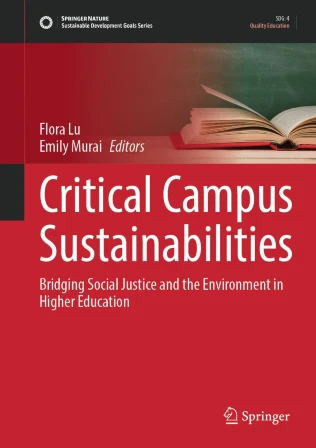
Critical Campus Sustainabilities: Bridging Social Justice and the Environment in Higher Education
Flora Lu (Professor of Environmental Studies at UCSC) and Emily Murai (Environmental Studies Lecturer at UCSC)
In response to student demands reflecting the urgency of societal and ecological problems, universities are making a burgeoning effort to infuse environmental sustainability efforts with social justice. In this edited volume, we extend calls for higher education leaders to revamp programming, pedagogy, and research, grounding our recommendations on findings from campus-wide surveys that were taken by over 8,000 undergraduates in 2016, 2019, and 2022, and drawing on lessons learned from several innovative, award-winning initiatives at UC Santa Cruz.

The Routledge International Handbook of Critical Philanthropy and Humanitarianism
Katharyne Mitchell (Distinguished Professor of Sociology)
Co-editor: Polly Pallister-Wilkins
This handbook builds a shared understanding of the troubling politics of philanthropy and the disturbing history and practices of humanitarianism. While historical work on philanthropy has long suggested a link between imperial rule and humanitarian aid, these insights have only recently been brought to bear on contemporary forms of giving. In this book, contributors link the long history of colonial philanthropy to current foundations and their programs in education, health, migrant care, and other social initiatives. They argue that both philanthropy and humanitarianism often function to consolidate market rule, consolidating and expanding liberal market rationalities of neoliberal entrepreneurialism to a widening population and set of institutions.

The Palgrave Handbook of Power, Gender, and Psychology
Eileen L. Zurbriggen (Professor of Psychology at UCSC)
Co-editor: Rose Capdevila
The Palgrave Handbook of Power, Gender, and Psychology takes an intersectional feminist approach to the exploration of psychology and gender through a lens of power. Gathering the work of sixty authors from different geographies, career stages, psychological sub-disciplines, methodologies, and experiences, the handbook showcases creativity in approach, and diversity of perspective. Individual chapters explore how individual experience of body, self, and world are constituted in social structures and symbolic systems and discuss current debates, including the #MeToo movement, reproduction rights, and gender in the developing world.
2022 Books
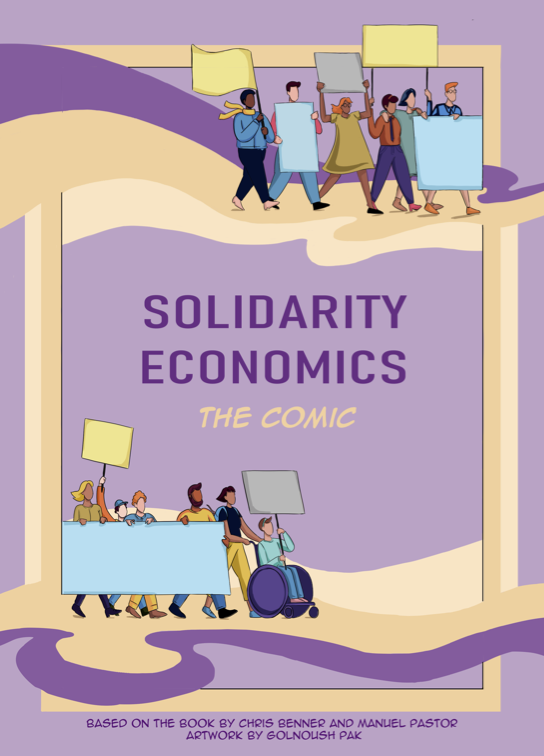
Solidarity Economics: The Comic
Chris Benner, Professor of Environmental Studies and Sociology
Co-author Manuel Pastor
In a world wracked by inequality, social divisions, and ecological destruction, can we build an alternative economy based on our mutual co-operation? This comic provides a short introduction and summary of key points of the Solidarity Economics book by Dr. Chris Benner and Dr. Manuel Pastor. In this book Chris Benner and Manuel Pastor invite us to imagine and create a new sort of solidarity economics – an approach grounded in our instincts for connection and community – and in so doing, actually build a more robust, sustainable, and equitable economy. Artwork by Golnoush Pak.
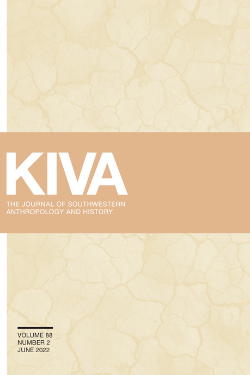
Tijeras Pueblo at the Crossroads: Archaeology, Cultural Heritage, and Public Education
Judith Habicht-Mauche, Professor Emeritus of Anthropology
Co-editor Sandra Arazi-Coambs
Tijeras Pueblo is a late precontact Ancestral Pueblo site, located just east of the modern city of Albuquerque, NM. This volume highlights diverse perspectives involved in understanding, interpreting, and preserving Tijeras Pueblo, including a summary of recent research on the site, the use of the site and its collections as a source for public education, a discussion of management challenges related to its location on a Forest Service administrative complex, and how interpretation and research have benefited from the continued collaboration with the descendant community of Isleta Pueblo.
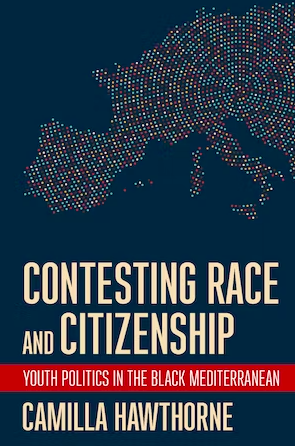
Contesting Race and Citizenship: Youth Politics in the Black Mediterranean
Camilla Hawthorne, Associate Professor of Sociology
Contesting Race and Citizenship is an original study of Black politics and varieties of political mobilization in Italy. Camilla Hawthorne focuses on the ways Italians of African descent have become entangled with processes of redefining the legal, racial, cultural, and economic boundaries of Italy and by extension, of Europe itself. Hawthorne traces not only mobilizations for national citizenship but also the more capacious, transnational Black diasporic possibilities that emerge when activists confront the ethical and political limits of citizenship as a means for securing meaningful, lasting racial justice—possibilities that are based on shared critiques of the racial state and shared histories of racial capitalism and colonialism.
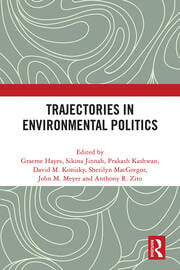
Trajectories in Environmental Politics
Sikina Jinnah, Professor of Environmental Studies
Co-editors Graeme Hayes, Sikina Jinnah, Prakash Kashwan, David Koniski, Sheilyn MacGregor, John M. Meyer, Anthony Zito
This book explores the dominant framings and paradigms of environmental politics, and the relationship between academic analysis and environmental politics. Discussing state violence, multispecies justice, epistemic injustice, the circular economy, NGOs, parties, green transition, and urban climate governance, they call above all for greater attention to intersectionality and interdisciplinarity, and for centering key insights about power relations and socio-economic inequalities into increasingly widespread, yet also often depoliticised, topics in the study of environmental politics.
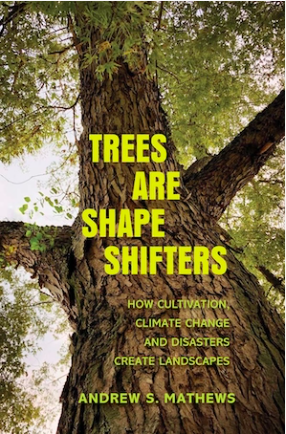
Trees Are Shape Shifters How Cultivation, Climate Change, and Disaster Create Landscapes
Andrew Mathews, Professor of Anthropology
In Italy and around the Mediterranean, almost every stone, every tree, and every hillside show traces of human activities. Situating climate change within the context of the Anthropocene, Andrew Mathews investigates how people in Lucca, Italy, make sense of social and environmental change by caring for the morphologies of trees and landscapes. He analyzes how people encounter climate change, not by thinking and talking about climate, but by caring for the environments around them. The human-transformed landscapes of Italy are a harbinger of the experiences that all of us are likely to face, and addressing these disasters will call upon all of us to think about the human and natural histories of the landscapes we live in.
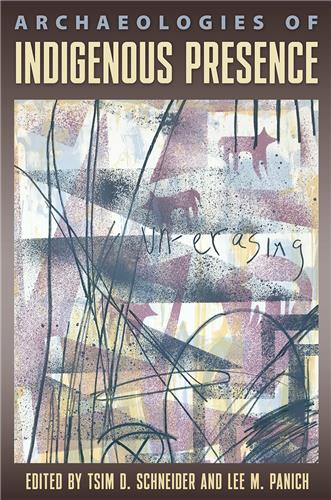
Archaeologies of Indigenous Presence
Tsim Schneider, Associate Professor of Anthropology
Co-editor Lee M. Panich
Challenging narratives of Indigenous cultural loss and disappearance that are still prevalent in the archaeological study of colonization, this book highlights collaborative research and efforts to center the enduring histories of Native peoples in North America through case studies from several regions across the continent. The contributors to this volume, including Indigenous scholars and Tribal resource managers, examine different ways that archaeologists can center long-term Indigenous presence in the practices of fieldwork, laboratory analysis, scholarly communication, and public interpretation.
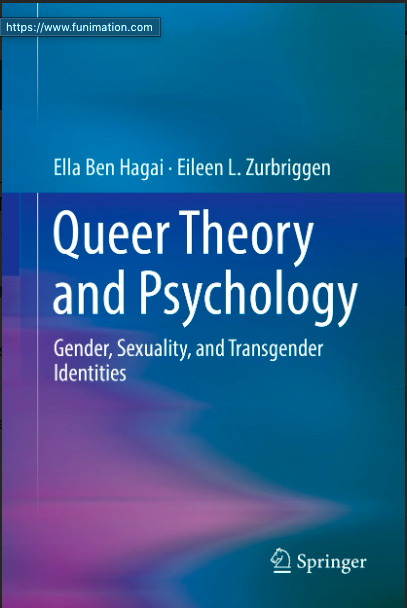
Queer Theory and Psychology: Gender, Sexuality, and Transgender Identities.
Eileen Zubriggen, Professor of Psychology
Co-author Ella ben Hagai
The authors explore foundational ideas from queer thought and transgender theory including the instability of gender, variation in sexualities, intersectional theory, and trans writers’ rejection of the “born in the wrong body” narrative. These key ideas are juxtaposed with innovative empirical psychological research on the fluidity of gender, the proliferation of sexual identities, and transgender affirming medical and psychological care.
2021 Books
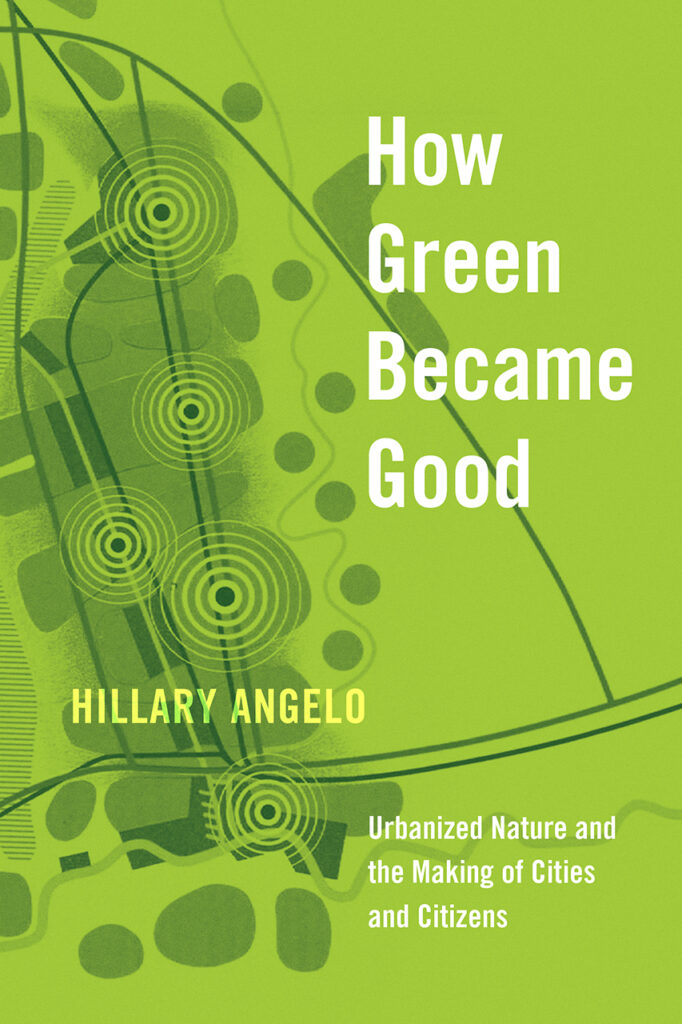
How Green Became Good: Urbanized Nature and the Making of Cities and Citizens
Hillary Angelo, Associate Professor of Sociology
Why are greening projects so widely taken up, and what good do they do? In How Green Became Good, Hillary Angelo uncovers the origins and meanings of appeals to urban nature. By tracing a century of greening projects in Germany’s Ruhr Valley, she reveals an enduring conviction that green space will transform us into ideal inhabitants of ideal cities, arguing that the creation of urban green space is more about how we imagine social life than about the good it imparts.
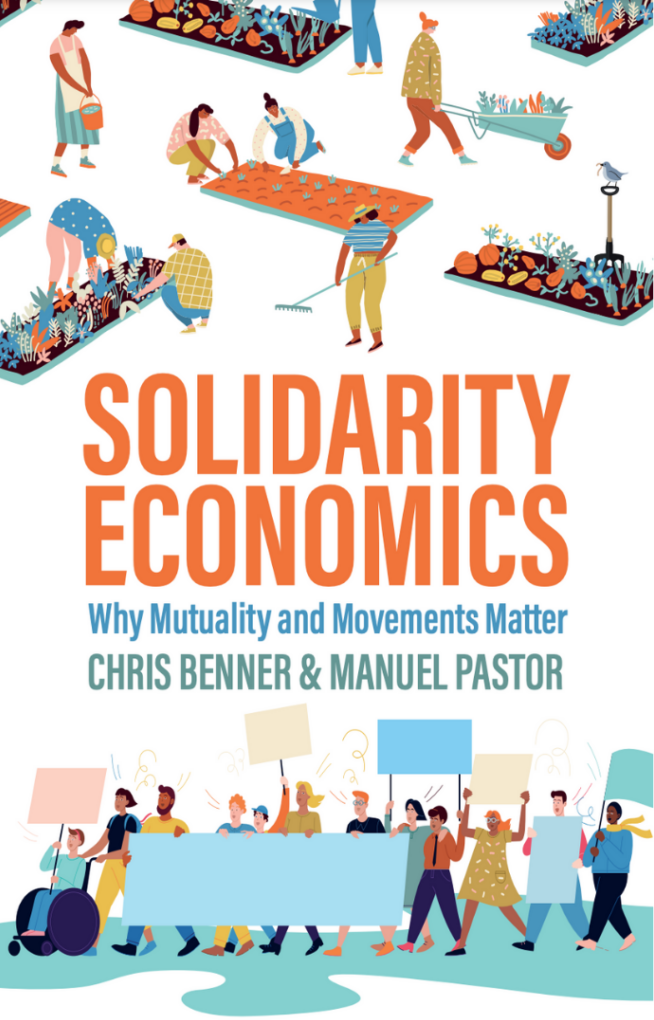
Solidarity Economics: Why Mutuality and Movements Matter
Chris Benner, Professor of Environmental Studies and Sociology
Co-author Manuel Pastor
In this book Chris Benner and Manuel Pastor invite us to imagine a new sort of solidarity economics – an approach grounded in our instincts for connection and community – and in so doing, actually build a more robust and sustainable economy. They argue that our current economy is already deeply dependent on mutuality, but that the inequality and fragmentation created by the status quo undermine this mutuality and with it our economic well-being. They outline the theoretical framing, policy agenda, and social movements that we need to revive solidarity and apply it to whole societies.
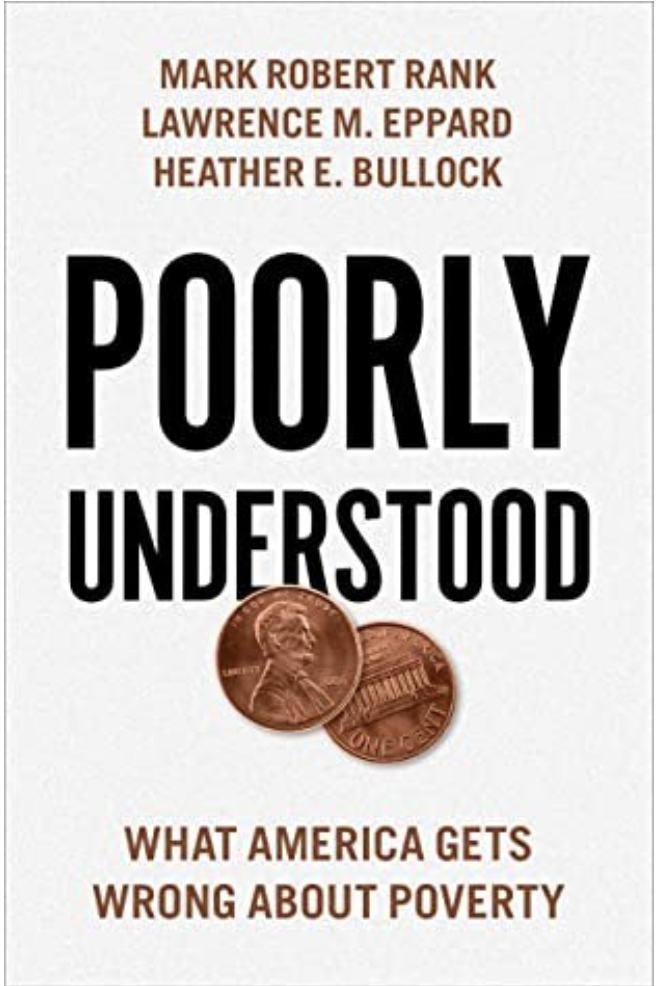
Poorly Understood: What America Gets Wrong about Poverty
Heather Bullock, Professor of Psychology
Co-authors Mark Robert Rank and Lawrence M. Eppard
Poorly Understood systematically addresses many of the most common myths about poverty, demonstrating that the realities of poverty are much different than the myths and in many ways more disturbing. The idealized image of American society is one of abundant opportunities, with hard work being rewarded by economic prosperity. But what if this picture is wrong? What if hard work does not necessarily lead to economic well-being? What if the reasons for poverty are largely beyond the control of individuals? And if all of the evidence necessary to disprove these myths has been readily available for years, why do they remain so stubbornly pervasive?
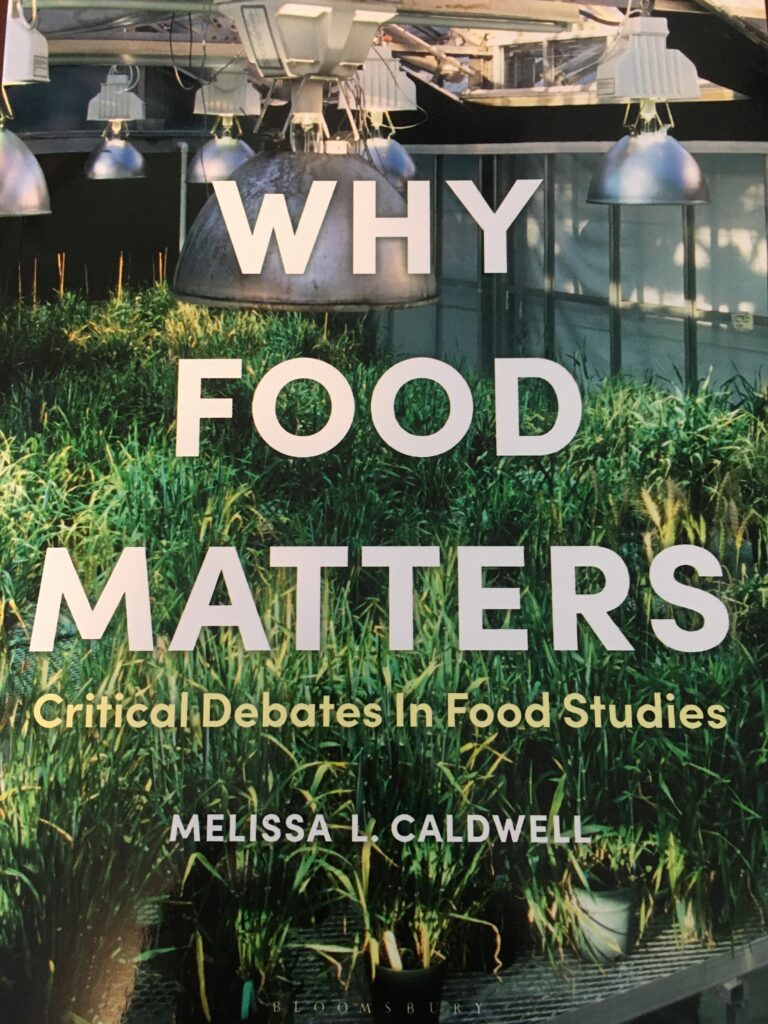
Why Food Matters: Critical Debates in Food Studies
Melissa Caldwell, Professor of Anthropology
What is food and why does it matter? By bringing together the most innovative, cutting-edge scholarship and debates in critical food studies, this volume considers what makes food so meaningful and powerful and sheds light on how questioning the very nature of food itself offers possibilities for reconsidering what we think we know about ourselves, other people, and the world around us.
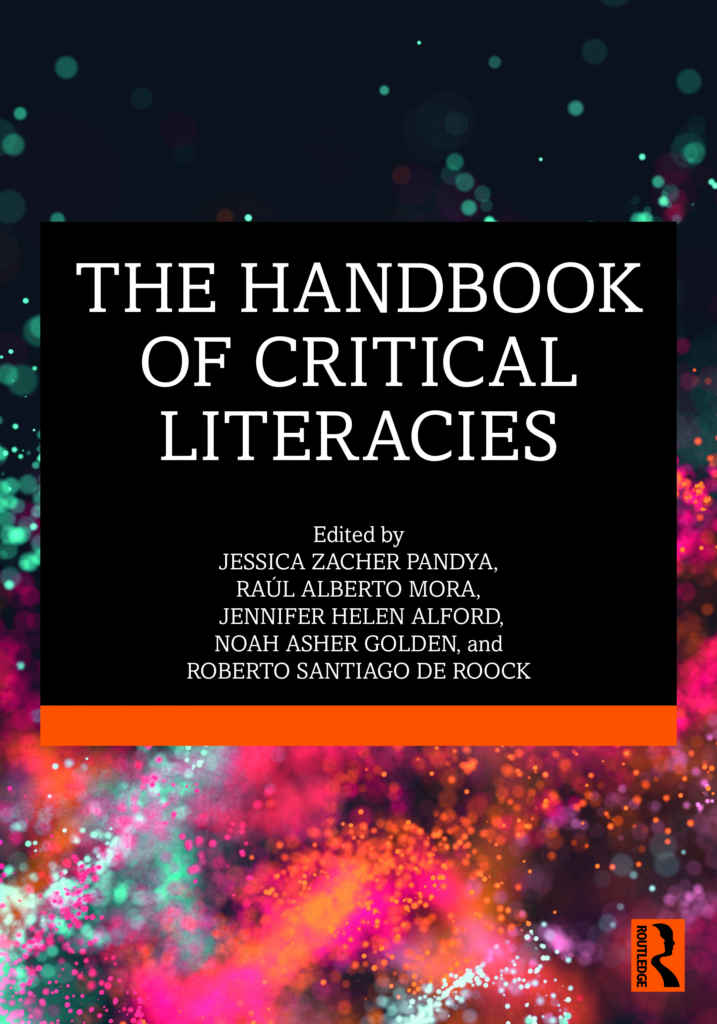
The Handbook of Critical Literacies
Roberto Santiago de Roock, Assistant Professor of Education
Co-editors Jessica Zacher Pandya, Raúl Alberto Mora, Jennifer Helen Alford, Noah Asher Golden
Critical literacies are classically understood as ways to interrogate texts and contexts to address injustices and they are an essential literacy practice. Organized into thematic and regional sections, this handbook provides substantive definitions of critical literacies across fields and geographies, surveys of critical literacy work in over 23 countries and regions, and overviews of research, practice, and conceptual connections to established and emerging theoretical frameworks.
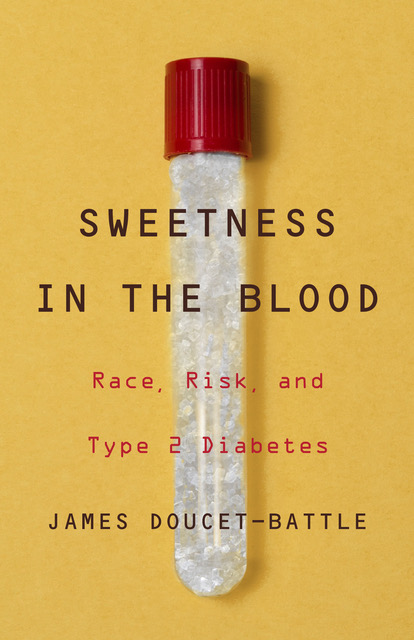
Sweetness in the Blood: Race, Risk, and Type 2 Diabetes
James Doucet-Battle, Assistant Professor of Sociology
In a rousing indictment of the idea that notions of biological race should drive scientific inquiry, Sweetness in the Blood provides an ethnographic picture of biotechnology’s framings of Type 2 diabetes risk and race. James Doucet-Battle offers an important critical examination of the assumptions behind the recruitment of African American and African-descent populations for Type 2 diabetes research.
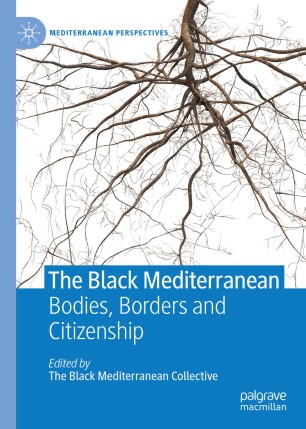
The Black Mediterranean: Bodies, Borders, and Citizenship
Camilla Hawthorne, Assistant Professor of Sociology
Co-editors Gabriele Proglio, Ida Danewid, P. Khalil Saucier, Giuseppe Grimaldi, Angelica Pesarini, Timothy Raeymaekers, Giulia Grechi, Vivian Gerrand
This edited volume aims to problematise and rethink the contemporary European migrant crisis in the Central Mediterranean through the lens of the Black Mediterranean. Bringing together scholars working in geography, political theory, sociology, and cultural studies, this volume takes the Black Mediterranean as a starting point for asking and answering a set of crucial questions about the racialized production of borders, bodies, and citizenship in contemporary Europe.
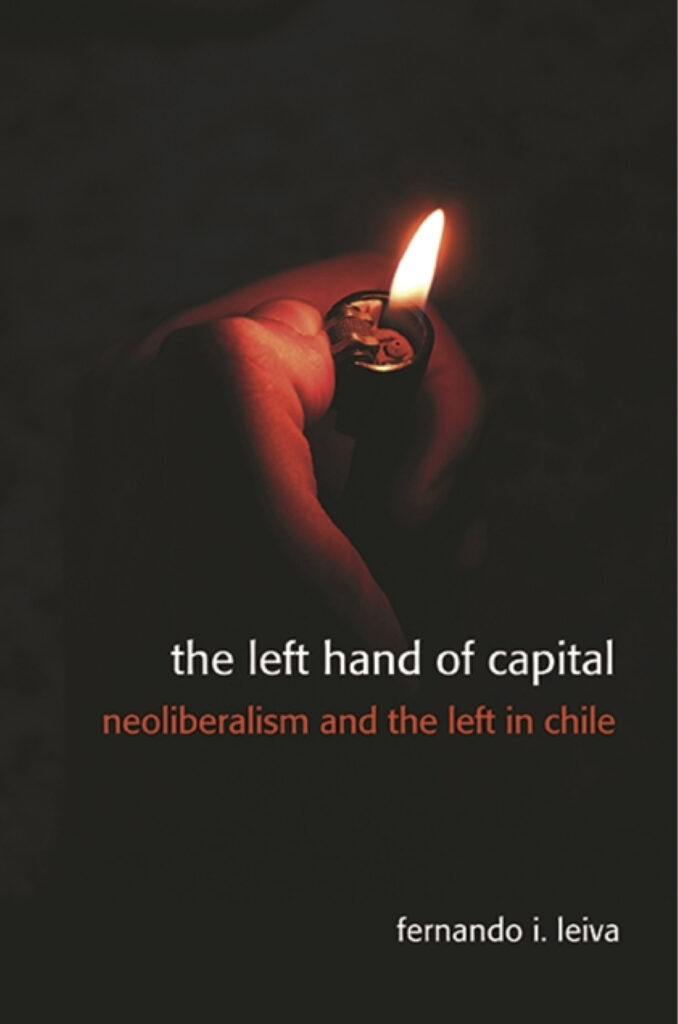
The Left Hand of Capital: Neoliberalism and the Left in Chile
Fernando Leiva, Professor of Latin American and Latino Studies
In The Left Hand of Capital, Fernando Ignacio Leiva provides a theoretically grounded analysis of the last thirty years of socioeconomic policies in Chile, beginning at the end of the Pinochet military regime in 1990. At a time when far-right movements seem to be growing in the Global South, Europe, and the United States, this book offers valuable insights into the predicament of social democracy and how, as in Chile and in the context of global neoliberalism, it can become the “left hand of capital.”
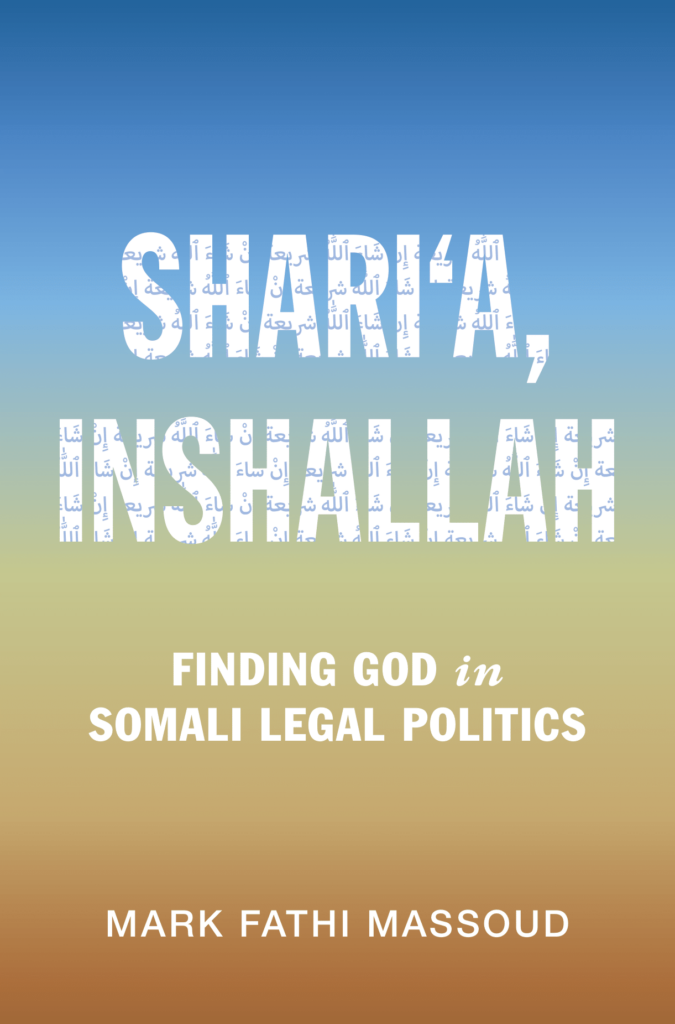
Shari’a, Inshallah: Finding God in Somali Legal Politics
Mark Fathi Massoud, Professor of Politics
Based on historical research, fieldwork, and interviews with lawyers, activists, and religious leaders, Shari’a, Inshallah documents nearly 150 years of historic attempts by the Somali people in East Africa to use shari’a to strengthen human rights and the rule of law — including attempts by contemporary women’s rights activists to push for gender equality by invoking shari’a. In a space where Western secular human rights interventions have failed, the book shows how future progress in human rights and the rule of law is possible under shari’a.
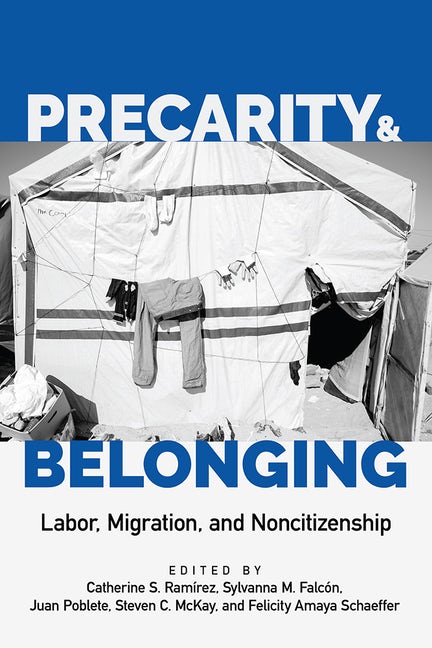
Precarity and Belonging: Labor, Migration, and Noncitizenship
Co-editors Catherine S. Ramírez, Sylvanna M. Falcón, Juan Poblete, Steven C. McKay & Felicity Amaya Schaeffer
Stemming from UCSC’s inaugural Andrew W. Mellon Foundation John E. Sawyer Seminar on the Comparative Study of Cultures and bringing together 23 contributors, _Precarity and Belonging_ looks at the institutions, practices, historical legacies, and discourses that have enabled, inhibited, or distorted social inclusion and civic and political participation. By highlighting commonalities between noncitizens and citizens, this volume sheds light on the nexus of precarity and mobility and strives to mitigate the divisiveness that threatens democracies in the twenty-first century.
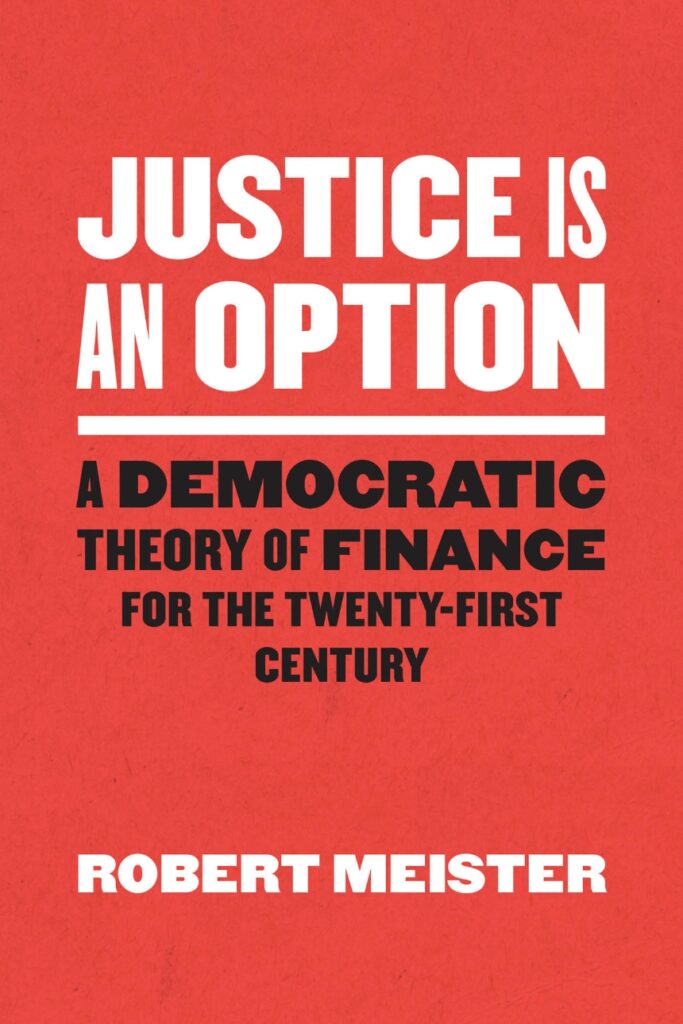
Justice Is an Option: A Democratic Theory of Finance for the Twenty-First Century
Bob Meister, Professor of Political and Social Thought
Reckoning with historical injustice must address the effect of liquid financial markets in preserving and compounding pre-existing inequality. By retheorizing the financial bailouts of 2009, Justice Is an Option focuses directly on capital market liquidity as a potential chokepoint in future democratic struggles to reverse the cumulative inequalities arising from historical injustice while also harvesting their cumulative benefits. Historical justice is here conceived as an option (or contingent claim) on the appreciated value of past injustice; and democratic struggle is reimagined in today’s capitalism as the extraction of a high political premium (price) for supporting the ongoing liquidity of the investment vehicles in which the benefits of bad history have been thus far preserved and accumulated.
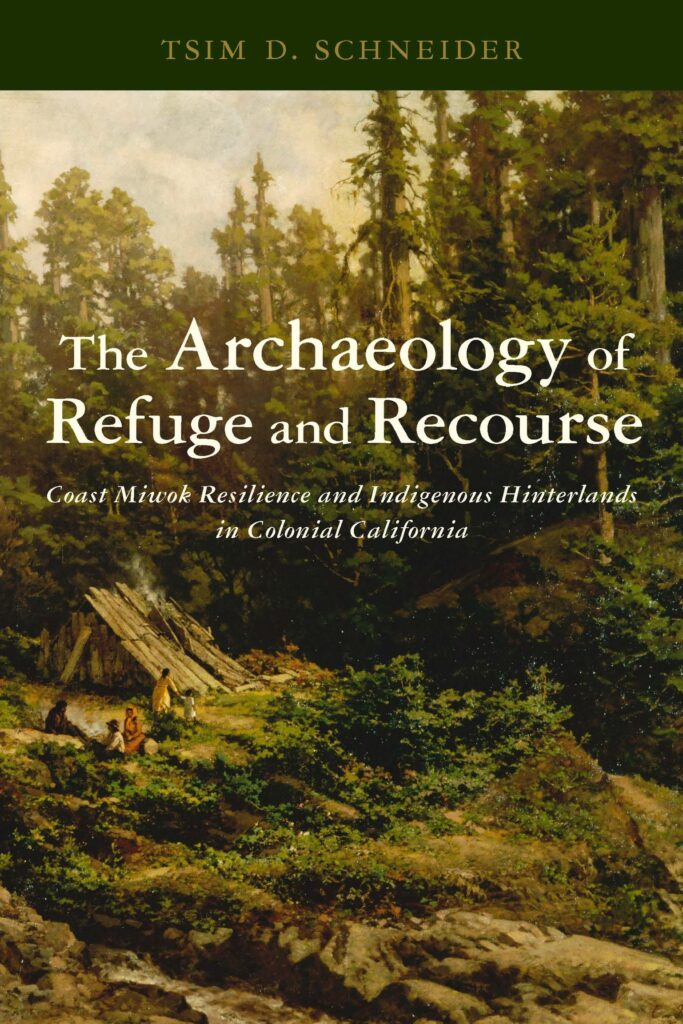
The Archaeology of Refuge and Recourse: Coast Miwok Resilience and Indigenous Hinterlands in Colonial California
Tsim Schneider, Assistant Professor of Anthropology
The Archaeology of Refuge and Recourse explores the dual practices of refuge and recourse among Indigenous peoples of California. From the eighteenth to the twentieth century, Indigenous Coast Miwok communities in California persisted throughout multiple waves of colonial intrusion. But to what ends?
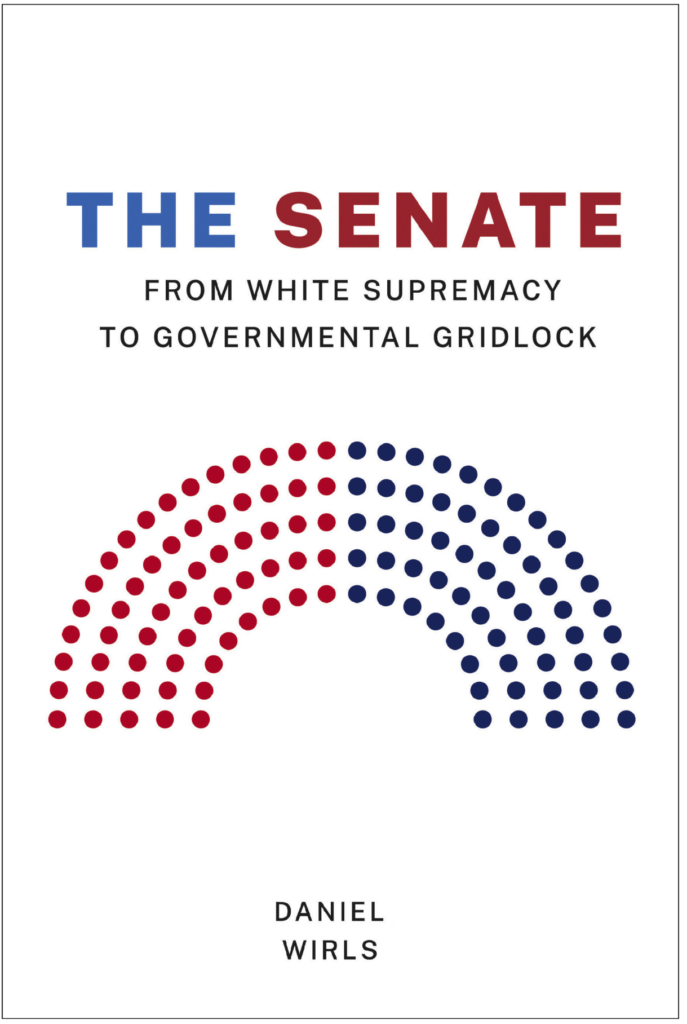
The Senate: From White Supremacy to Government Gridlock
Daniel Wirls, Professor of Politics
This book examines the Senate in relation to our other institutions of government and the constitutional system as a whole, exposing the role of the “world’s greatest deliberative body” in undermining effective government and maintaining white supremacy in America.
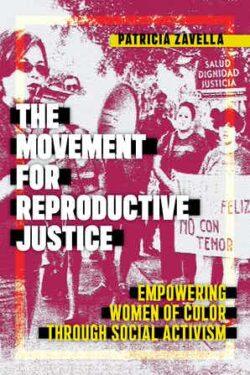
The Movement for Reproductive Justice: Empowering Women of Color through Social Activism
Patricia Zavella, Professor Emerita of Latin American and Latino Studies
In this book, Zavella draws on five years of ethnographic research to explore collaborations among women of color engaged in reproductive justice activism.
2020 Books
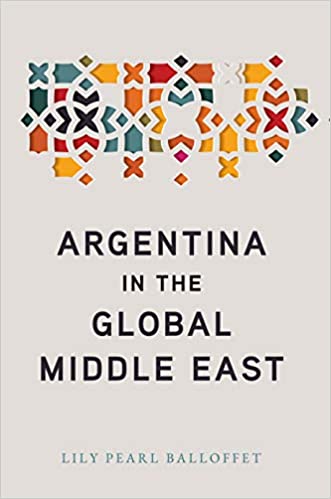
Argentina in the Global Middle East
Lily Pearl Balloffet, Assistant Professor of Latin American and Latino Studies
Balloffet’s study connects modern Latin American and Middle Eastern history through shared links to global migration systems. Following the mobile lives of individuals with roots in the Levantine Middle East sheds light on the intersections of ethnicity, migrant–homeland ties, and international relations.
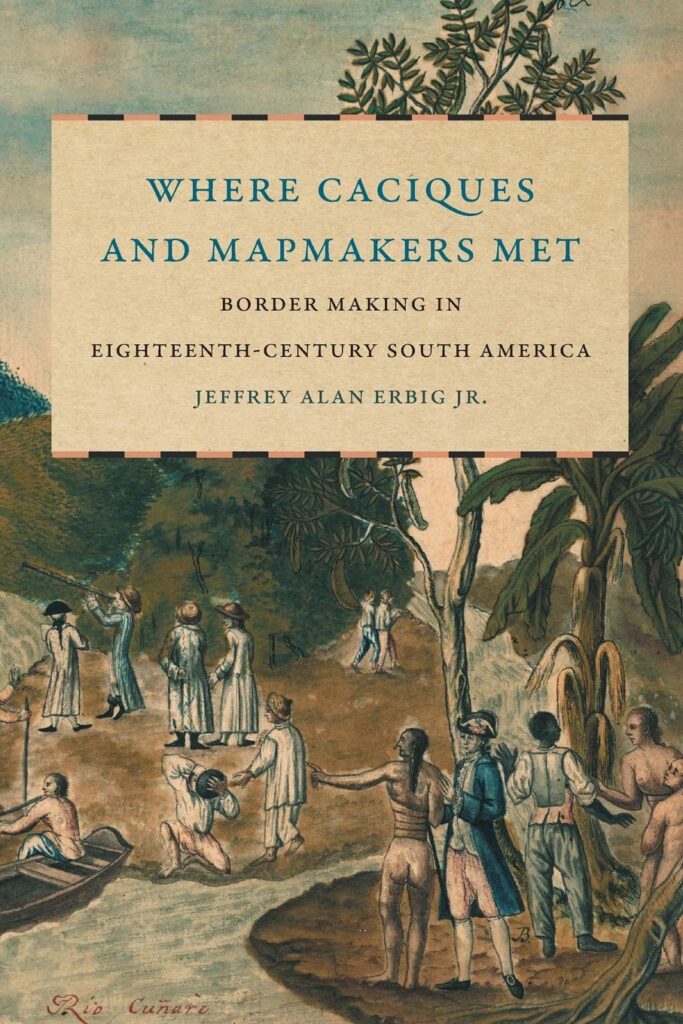
Where Caciques and Mapmakers Met: Border Making in Eighteenth-Century South America
Jeffrey Erbig, Assistant Professor of Latin American and Latino Studies
Drawing upon manuscripts from over two dozen archives in seven countries, Jeffrey Erbig traces on-the-ground interactions between Ibero-American colonists, Jesuit and Guaraní mission-dwellers, and autonomous Indigenous peoples as they responded to ever-changing notions of territorial possession.
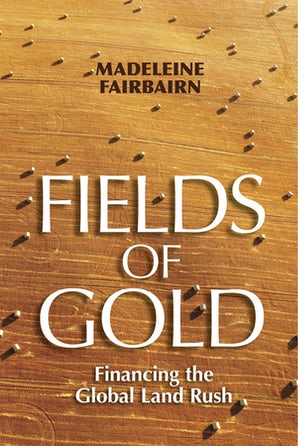
Fields of Gold: Financing the Global Land Rush
Madeleine Fairbairn, Assistant Professor of Environmental Studies
Madeleine Fairbairn looks at forces and players that have transformed farmland into a novel financial asset class, a practice that took hold after the 2008 financial crisis and continues today.
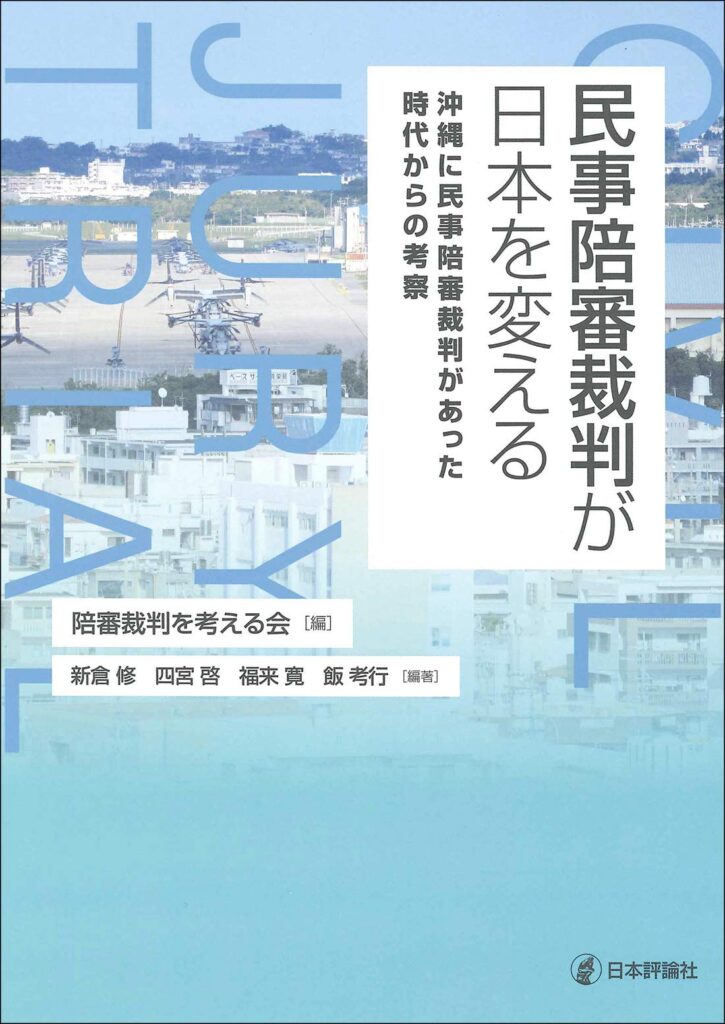
Civil Jury Trials Revolutionize Japan: Lessons from Experience of Civil Jury Trials in Okinawa
Hiroshi Fukurai, Professor of Legal Studies and Sociology
An examination of the civil jury trials that took place in Okinawa, involving corporate and government liabilities in relation to the colossal nuclear catastrophe in Fukushima in 2011. The introduction of civil jury trials may transform Japan’s legal landscape in the resolution of civil dispute cases.
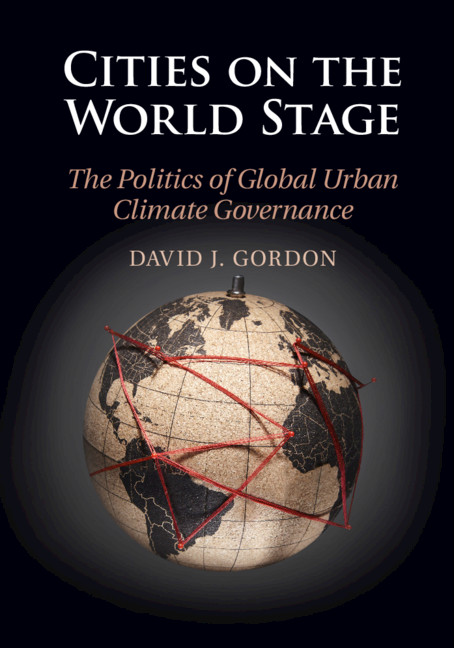
Cities on the World Stage: The Politics of Global Urban Climate Governance
David Gordon, Assistant Professor of Politics
Cities are playing an ever more important role in the mitigation and adaption to climate change. This book examines the politics shaping whether, how and to what extent cities engage in global climate governance. Highlighting the constraints facing city networks and the potential pitfalls associated with a city-driven global response, this assessment of the transformative potential of cities will be of great interest to researchers, graduate students and policymakers in global environmental politics and policy.
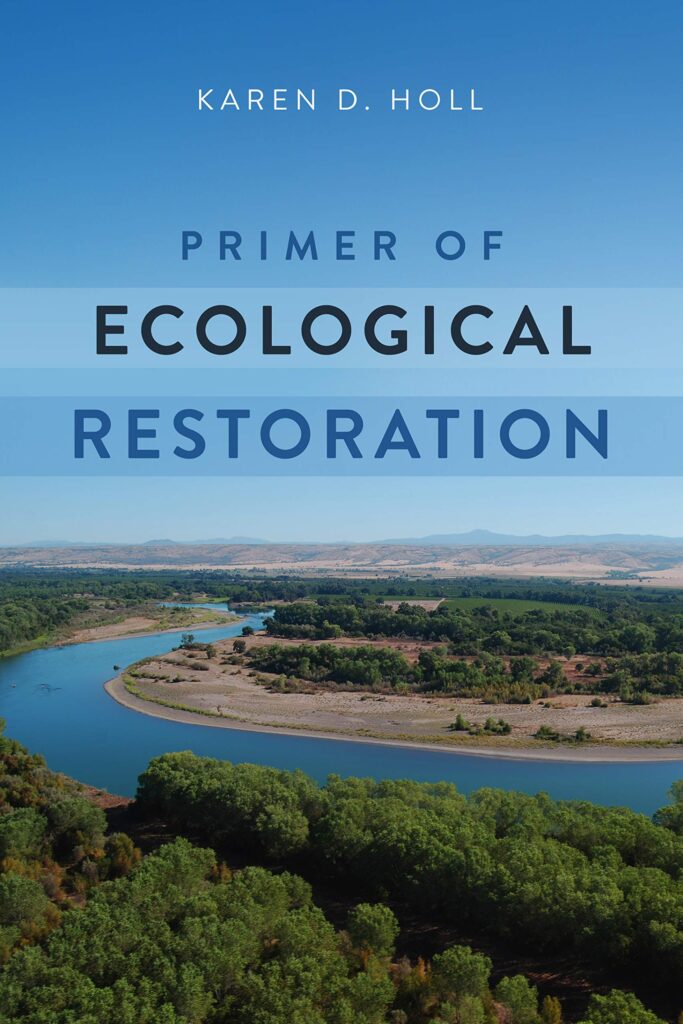
Primer of Ecological Restoration
Karen Holl, Professor of Environmental Studies
A succinct introduction to the theory and practice of ecological restoration as a strategy to conserve biodiversity and ecosystems. The book introduces readers to the basics of restoration project planning, monitoring, and adaptive management.
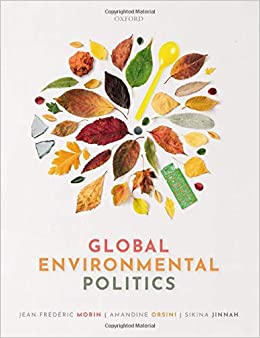
Global Environmental Politics: Understanding the Governance of the Earth
Sikina Jinnah, Assistant Professor of Environmental Studies
A comprehensive introduction to the key concepts, theories, methods, and debates in environmental politics. The authors’ analytical approach encourages students to critique a wide variety of political perspectives, equipping them with the necessary tools to develop their own arguments and opinions.

Greening Through Trade: How American Trade Policy Is Linked to Environmental Protection Abroad
Sikina Jinnah, Assistant Professor of Environmental Studies
How the environmental provisions in US preferential trade agreements affect both the environmental policies of trading partners and the effectiveness of multilateral environmental agreements.
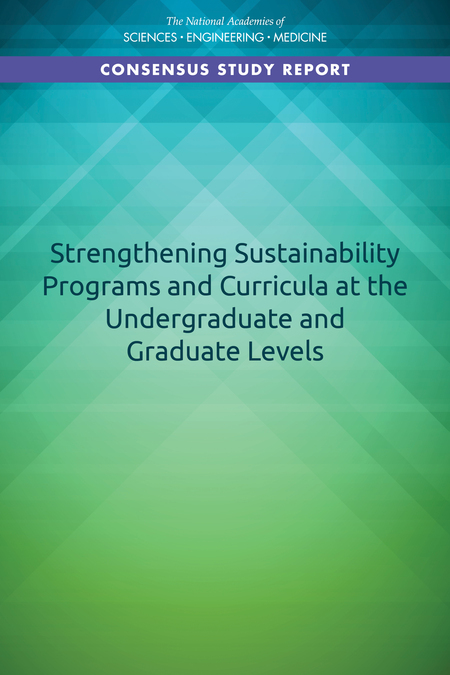
Strengthening Sustainability Programs and Curricula at the Undergraduate and Graduate Levels
Anne Kapuscinski, Professor of Environmental Studies & Coastal Science and Policy Program
Evidence-based core competencies for interdisciplinary sustainability programs can provide suitable guidance for curricular and program development, research, policy, communication, and pedagogical approaches at academic institutions.
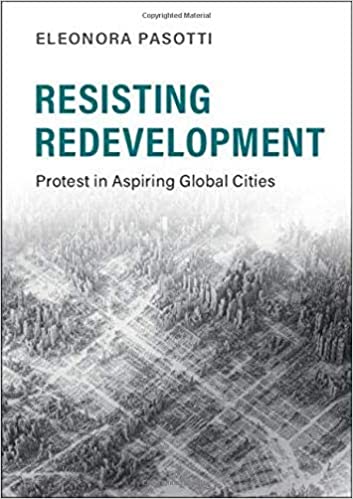
Resisting Redevelopment: Protest in Aspiring Global Cities
Eleonora Pasotti, Associate Professor of Politics
The politics of urban development is one of the most enduring, central themes of urban politics. In Resisting Redevelopment, Pasotti explores the forces that enable residents of ‘aspiring global cities,’ or economically competitive cities, to mobilize against gentrification and other forms of displacement, as well as what makes mobilizations successful.
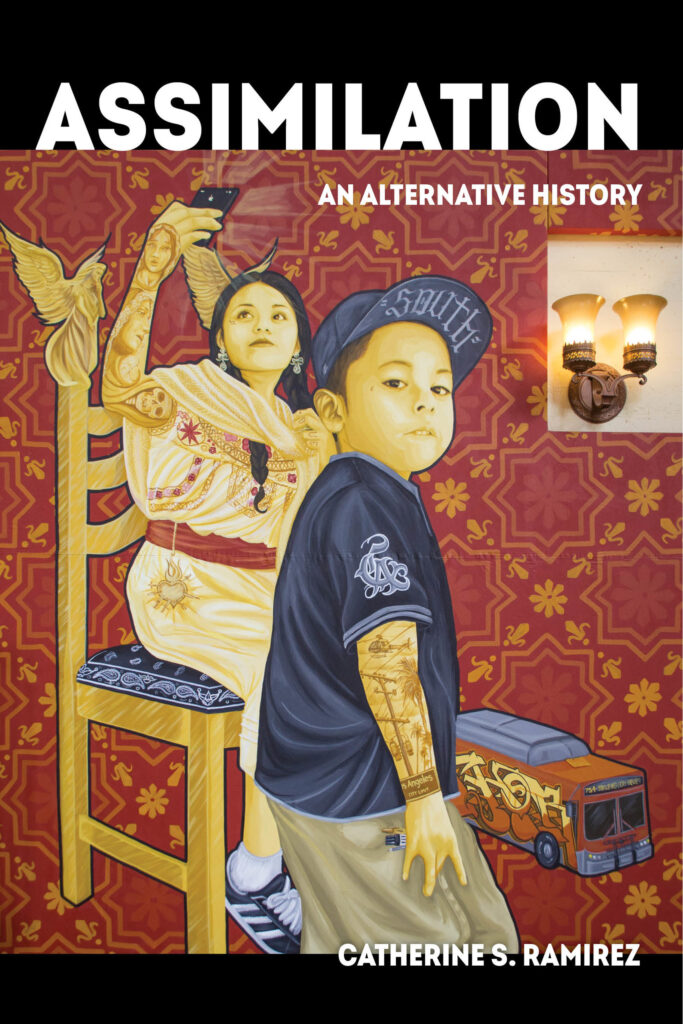
Assimilation: An Alternative History
Catherine S. Ramírez, Professor of Latin American and Latino Studies
Weaving together the legacies of US settler colonialism, slavery, and border control, Ramírez challenges the assumption that racialization and assimilation are separate and incompatible processes.
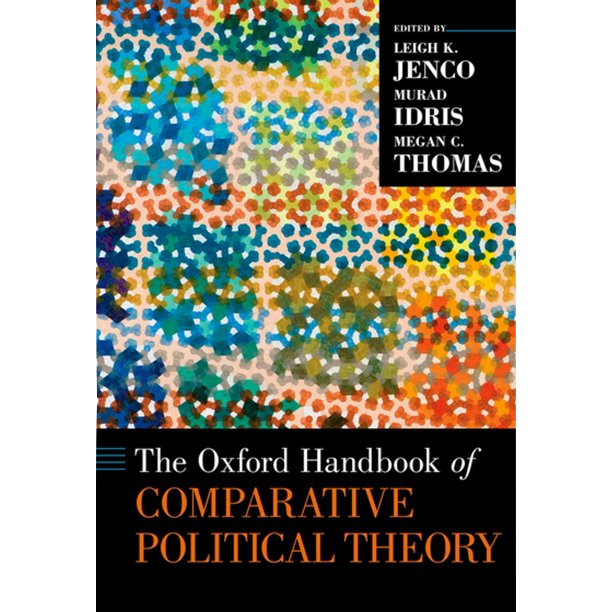
The Oxford Handbook of Comparative Political Theory
Megan Thomas, Associate Professor of Politics
The handbook demonstrates how mainstream political theory can and must be enriched through attention to genuinely global, rather than parochially Euro-American, contributions to political thinking.
2019 Books
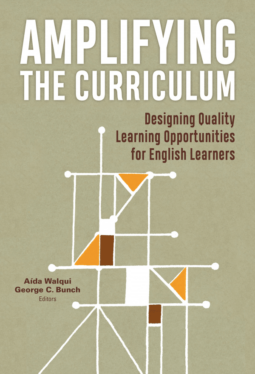
Amplifying the Curriculum: Designing Quality Learning Opportunities for English Learners
George Bunch, Professor of Education
This practical resource will guide teachers through the coherent design of tasks, lessons, and units of study that invite English Lerners (and all students) to engage in productive, meaningful, and intellectually engaging activity.
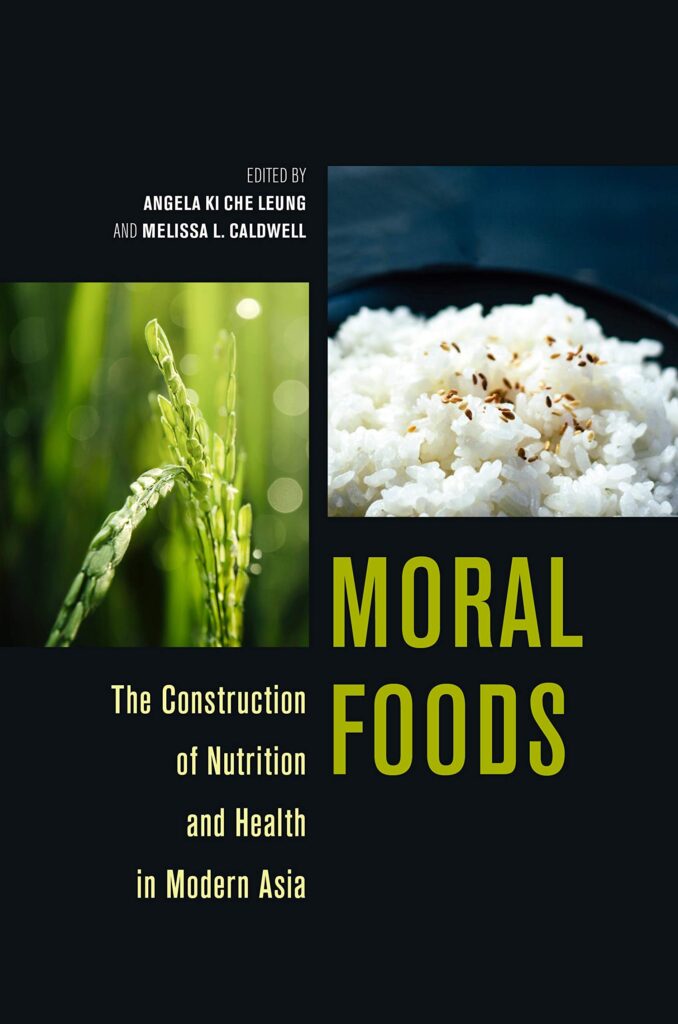
Moral Foods: The Construction of Nutrition and Health in Modern Asia
Melissa L. Caldwell, Professor of Anthropology
Collectively, the chapters raise intriguing questions about how foods and the bodies that consume them have been valued politically economically, culturally, and morally, and about how those values originated and evolved.
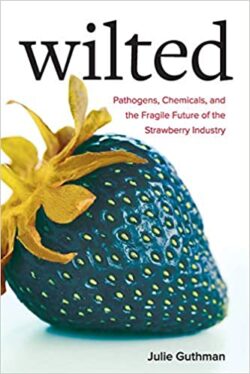
Wilted: Pathogens, Chemicals, and the Fragile Future of the Strawberry Industry
Julie Guthman, Professor of Feminist Studies
The particular conditions of plants, soil, chemicals, climate, and laboring bodies that once made strawberry production so lucrative in the Golden State have now changed and become a set of related threats that jeopardize the future of the industry.
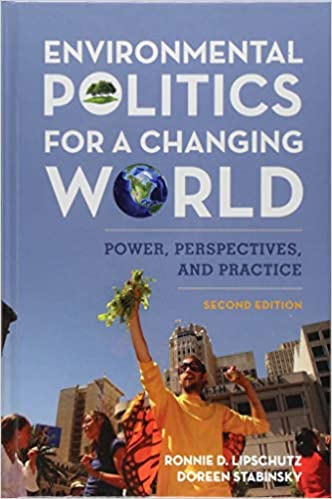
Environmental Politics for a Changing World: Power, Perspectives, and Practice
Ronnie Lipschutz, Emeritus Professor of Politics
Using framework of political economy and political ecology, the authors deconstruct current environmental problems to identify room causes and address those problems through mobilization of collective action and social power.
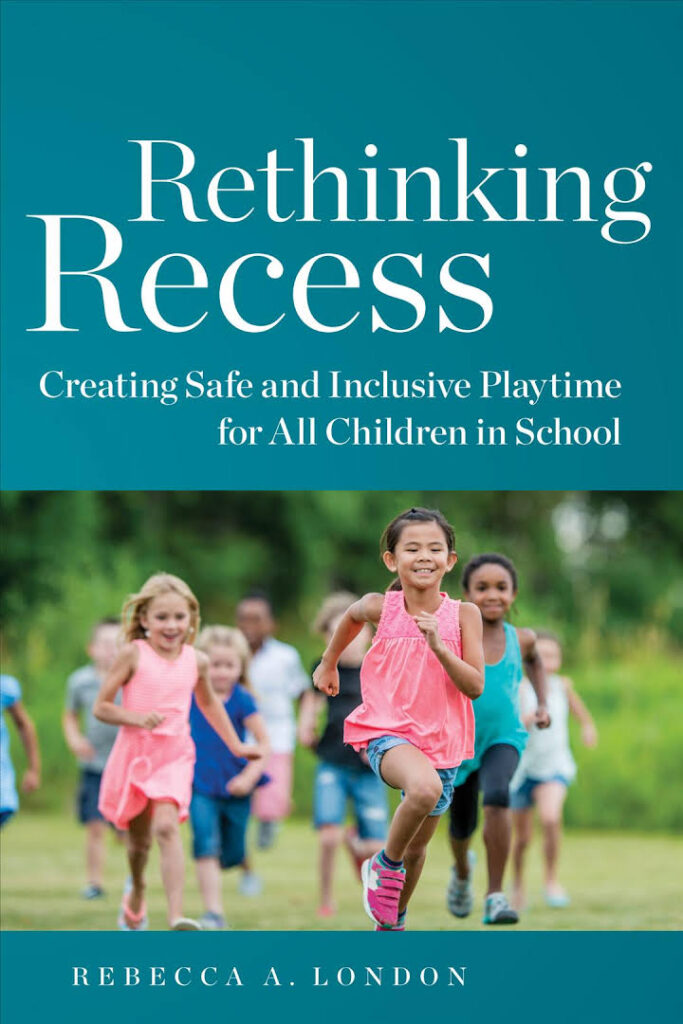
Rethinking Recess: Creating Safe and Inclusive Playtime for All Children in School
Rebecca London, Associate Professor of Sociology
Recess has been overlooked as an essential part of elementary school experience, with major implications for how well schools serve all students equitably and responsively.
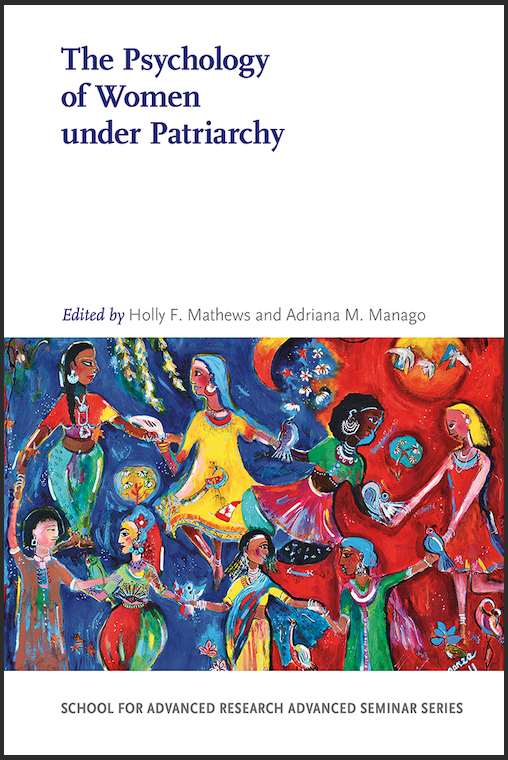
The Psychology of Women under Patriarchy
Adriana Manago, Assistant Professor of Psychology
The contributors to this volume draw upon field research and in-depth qualitative data from different parts of the world to explore the reasons for women’s varied psychological responses to patriarchy.
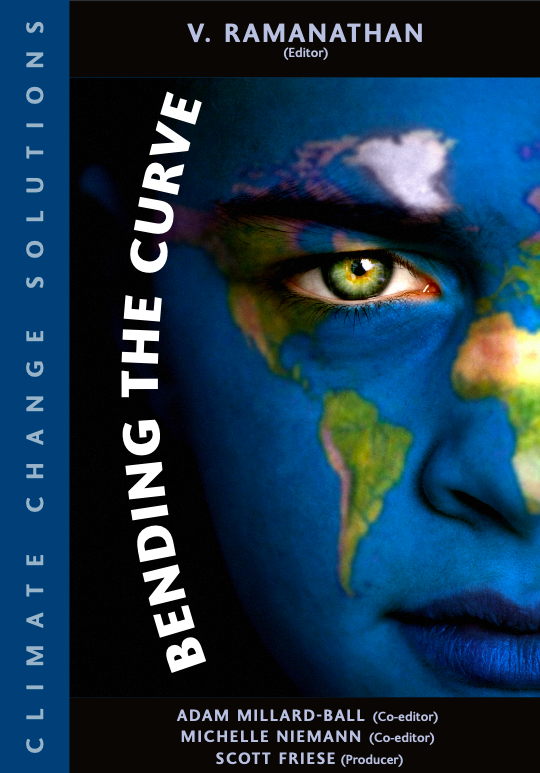
Bending the Curve: Climate Change Solutions
Adam Millard-Ball, Associate Professor of Environmental Studies
Using framework of political economy and political ecology, the authors deconstruct current environmental problems to identify room causes and address those problems through mobilization of collective action and social power.
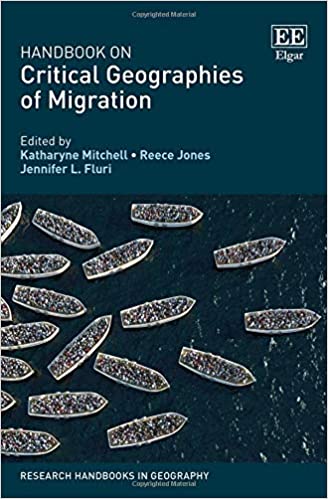
Handbook on Critical Geographies of Migration
Katharyne Mitchell, Dean of the Division of Social Sciences
Border walls, shipwrecks in the Mediterranean, separated families at the border, island detention camps: migration is at the center of contemporary political and academic debates.
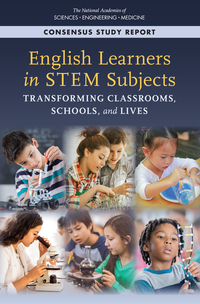
English Learners in STEM Subjects: Transforming Classrooms, Schools, and Lives
Judit Moschkovich, Professor of Education
The imperative that all students, including English learners (Els), achieve high academic standards and have opportunities to participate in science, technology, engineering, and math (STEM) learning has become even more urgent and complex given shifts in science and math standards.
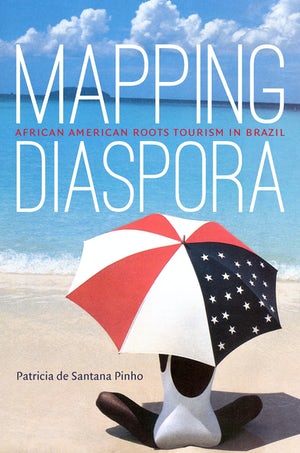
Mapping Diaspora: African American Roots Tourism in Brazil
Patricia Pinho, Associate Professor of
Latin American & Latino Studies
Drawing on over a decade of ethnographic research as well as textual, visual, and archival sources, Pinho investigates African American roots tourism, a complex, poignant kind of travel that provides profound personal and collective meaning for those searching for black identity and heritage.
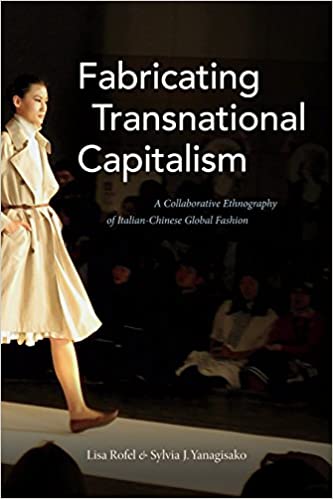
Fabricating Transnational Capitalism: A Collaborative Ethnography of Italian-Chinese Global Fashion
Lisa Rofel, Professor Emerita of Anthropology
Drawing on their respective linguistic and regional areas of expertise, Rofel and Yanagisako how different historical legacies of capital, labor, nation, and kinship are crucial in the formation of global capitalism.
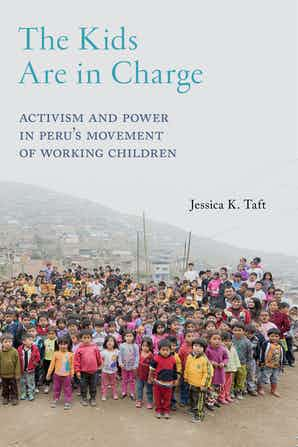
The Kids Are in Charge: Activism and Power in Peru’s Movement of Working Children
Jessica Taft, Professor of Latin American & Latino Studies
Since 1976, the Peruvian movement of working children has fought to redefine age-based roles in society, including defending children’s right to work. Taft gives us an inside look at this groundbreaking, intergenerational social movement.

